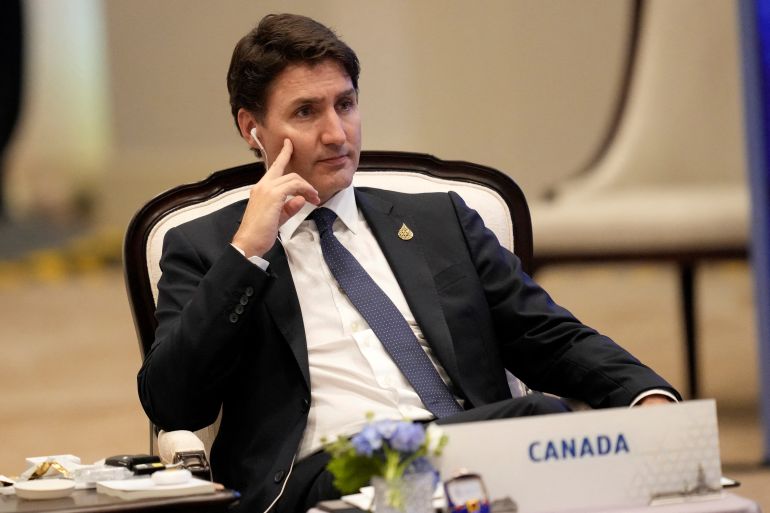Canada opens inquiry into allegations of election meddling by China, Russia
Canadian government tasks a judge with leading a public inquiry long sought by conservative lawmakers.

Canada has tasked a judge with leading a public inquiry into alleged election interference by China and Russia, a victory for conservative politicians in the opposition who have accused the Canadian government for months of failing to adequately respond to the allegations.
Prime Minister Justin Trudeau’s Liberal government on Thursday assigned Quebec Court of Appeal Justice Marie-Josee Hogue to lead the probe.
Keep reading
list of 3 itemsCanada probes Walmart, Hugo Boss, Diesel over Uighur forced labour claims
Canada freezes ties with AIIB after ‘communist dominance’ claims
“Foreign interference in Canadian democratic institutions is unacceptable,” Public Safety Minister Dominic LeBlanc said during a news conference.
“Justice Hogue will be tasked with examining and assessing interference by China, Russia and other foreign states and non-state actors.”
The Government of Canada, with the support of all recognized parties in the House, is establishing a public inquiry into foreign interference in federal electoral processes and democratic institutions.
— Dominic LeBlanc (@DLeBlancNB) September 7, 2023
Trudeau’s government has faced growing criticism over the past several months after media reports surfaced alleging that China sought to interfere in the 2019 and 2021 Canadian elections.
Another report accusing Beijing of being involved in an intimidation campaign against Conservative Party lawmaker Michael Chong and his family also drew widespread condemnation and prompted Ottawa to expel a Chinese diplomat in Toronto earlier this year.
China has consistently denied that it has interfered in Canada’s internal affairs, calling the allegations “groundless”.
The accusations heightened tensions between Ottawa and Beijing. Relations have been frosty for several years over a range of issues, including human rights, trade and the arrests of Canadian and Chinese citizens.
Trudeau had previously assigned former Governor General David Johnston to look into allegations of Chinese interference in March. But Johnston stepped down in June after saying that a “highly partisan atmosphere” had made it impossible to complete his task.
A month before he resigned, Johnston released a draft report that concluded that the government had not ignored concerns about foreign interference.
“I have not found instances of the government knowingly ignoring intelligence, advice or recommendations on foreign interference, or making decisions based on partisan considerations in dealing with these issues,” he wrote in the 55-page document.
But conservative politicians have continued to hammer the government over the issue, questioning whether it responded adequately to claims of election interference by Beijing and calling for an independent investigation.
“We called out the Liberals’ last plan to sweep this issue under the rug … and we will not hesitate to call them out again if this process doesn’t deliver real answers for Canadians,” Pierre Poilievre, the leader of the Conservative Party, said in a statement in response to Thursday’s announcement.
Hogue’s nomination comes after months of negotiations between the government and opposition parties on the public inquiry’s terms of reference and who should lead it.
Leblanc said on Thursday that the justice had the support of all parties.
She will have broad investigative powers and, according to the minister, will be expected “to follow the evidence” as she probes “any potential impacts on the 2019 and 2021 general elections”.
Hogue is to release an initial report in February 2024 and a final version ahead of a ballot expected the following year.